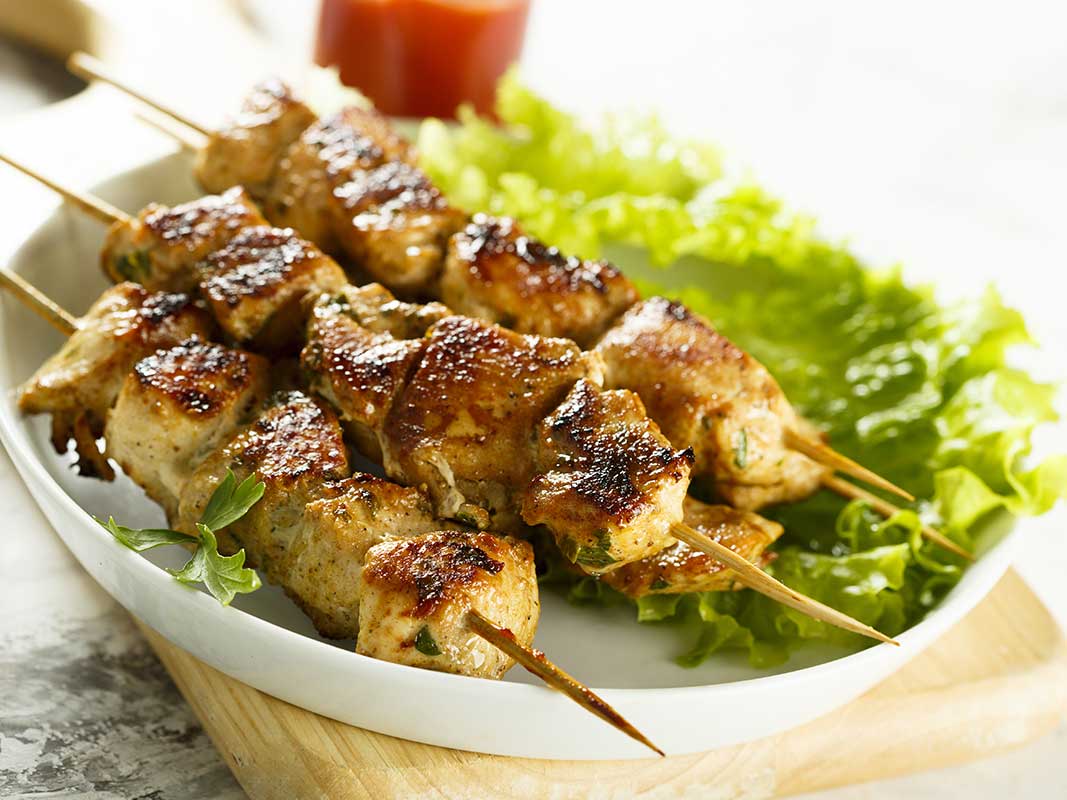When it comes to the conjugation of meat and marinades, there is hardly a precursor, so to say, in the culinary scheme of things. Whether it is a few chicken thighs to be thrown on the grill, or a hunk of meat to be barbequed on a hickory altar, or an everyday simple sauté, or a curry to be made richer, marinating has always been the natural recourse taken by cooks. And it all started long before Harland David Sanders made a fortune by commercialising the Southern Soul and dunking chicken wings into buttermilk, long before Roy Yamaguchi pushed his Misoyaki Butterfish into Primetime dining, long, long before Levi Roots brought his signature Reggae Reggae to us and most definitely long before Nick Pihakis and the Fatback Collective mortified the faint-hearted with their Deathmobile.
Looking back at history, we find marinades in cookbooks dated as early as the First Babylonian dynasty in 2000 B.C. A glorious autumnal dish ‘Deer stew’ appears in Mesopotamian clay tablets, where the deer meat is marinated in red wine, bay leaves, cumin and coriander for as long as 24 hours.
Through time and geography, marinades have seen variations and legacies. While the Spanish swear by their spicy adobo mix, the Portuguese stay true to Carne de vinha d’alhos (the original source of the Goan vindaloo), and while the Koreans and Philipinos are generous with soy sauce and brown sugar, the bashed up lemongrass is prominent in every Thai inspiration. However, there is one central marinade that towers over the rest as far as reach is concerned. Yogurt marinades have for a very long time dominated cuisines across India, Iran, Greece, Turkey and North Africa.
Yogurt has a rich and enduring gastronomical history. Its use has been recorded as early as 6000 B.C among the Neolithic populations of Central Asia. As per the documented evidence, herdsmen carrying animal milk in pouches made out of animal stomachs discovered the curdling, a natural outcome of the enzymatic reaction. However, as they took to the taste of ‘spoilt’ milk, the practice continued. In fact, yogurt and its benefits got a massive backing by Genghis Khan and his Mongol army, who, as the legend goes, thrived on yogurt.
Within the wide span of Indian cuisine, yogurt and marinades made a foray alongside the Mughals— Mughalai food tradition in itself being a potpourri of Mongol, Persian and Indian. The changing face of Mughal politics and alliances made therein made their appearances in the food of the times as well. And while existing tandoor traditions were assimilated, royal Hindu traditions too cohabited within the ‘House of Feasting’. Naturally yogurt marinade enjoyed pride of the place.
Marinades have essentially been used as tenderizing agents to take some of the natural toughness away from both the produce and the process. Contrary to popular belief (especially popular within barbeque circles who swear by their mixes) spices in a marinade do nothing to unwind the toughened proteins. At least not till they have been bound in an all permeating base itself. This is where it gets tricky. Truth be told, there can only be three types of marinades effective enough to tenderize proteins and even among those three just one stands a chance to carry the spice flavours deeper into the meat.
There is the acidic marinade base which can be vinegar, or wine, or lemon juice. But while acids do tenderize meats, you can always run a chance of overdoing it, which then works against the meat, toughening it up. So there’s the risk of too much. Enzymatic action is another tenderizing option. Whether it is ginger, or pineapple or papaya (carrying papain), the enzymes within are able tenderizers. The only risk one might run into with these is a more than desired intense action that imparts a rather unpleasant texture to the meat if marinated for long. The third and the most potent and hassle-free option is yogurt – the veritable king of marinades. The calcium in yogurt reacts with the proteins leading to soft succulence. Consequently, it not only unwinds and relaxes the protein strands but it also provides a beautiful medium for spice mixes to bloom. No wonder regions where yogurt appears in cooking most prominently, boast of fragrant and flavourful dishes.
All you need is a light coating of yogurt with the seasoning of choice to make an effective marinade. For delicate fillets 45 minutes of marinating is ideal. For other meats it can take anything between four and twelve hours to reach the desired level of tenderness depending on the thickness and density. So if it’s taste you are craving for without getting too much work on your hands, yogurt is the way to go.
All hail the king of marinades!


I am amazed at the details and depth of writing displayed here. Sheer genius. So glad I landed here. Bravo! Keep up the great work!
We are so glad you like our work, Rizwana. Stay peeled for more such blogs. 🙂